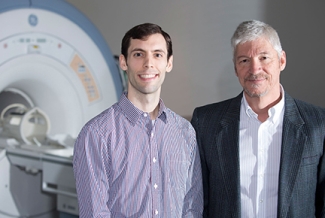The power of technology is one thing, but novel uses of great tools to investigate complex questions is connecting researchers with new insights, like this new study from the department of psychology:
The same compounds that give plants and vegetables their vibrant colors might be able to bolster brain functioning in older adults, according to a recent study from the University of Georgia. The research from the department of psychology is the first to use fMRI technology to investigate how levels of those compounds affect brain activity and showed that study participants with lower levels had to rely on more brain power to complete memory-oriented tasks.
People get these compounds, known as carotenoids, from their diets, and two of them-lutein and zeaxanthin-have been shown in previous research to bolster eye and cognitive health in older adults. What isn't known is the neural mechanisms underlying the relationship between these compounds and cognition, said Cutter Lindbergh, first author of the study and a doctoral candidate in the psychology department in the Franklin College of Arts and Sciences.
"If you can show that in fact there's a real mechanism behind this, then you could potentially use these nutritional supplements or changes in diet, and you could easily intervene and potentially improve cognition in older adults," said L. Stephen Miller, a professor of psychology and corresponding author of the study.
Our researchers in the Behavorial and Brain Sciences labs have been working on the effects of lutein for some time now. Teamed with Miller and colleagues in the Bio-imaging Research Center, expertise can be leveraged to produce fascinating new findings like this. Congratulations all and, as always, eat your veggies.
Image: Cutter Lindbergh, left, a doctoral candidate in the psychology department, and Stephen Miller, director of the Bio-Imaging Research Center.

